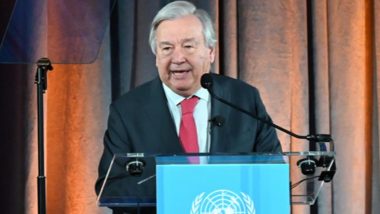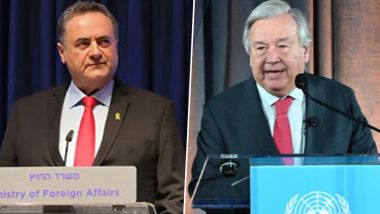United Nations, April 4: UN Secretary-General Antonio Guterres has joined the global call to empower women and girls with autism and involve them and their advocates in policy and decision-making to address the challenges they face. "They face barriers to accessing education and employment on an equal footing with others, denial of their reproductive rights and the freedom to make their own choices, and a lack of involvement in policy making on matters that concern them," the Secretary-General said in his message on the commemoration of World Autism Day.
Emphasizing that "our work for gender equality and women's empowerment must reach all the world's women and girls," he stressed that the efforts of the international community to achieve the Sustainable Development Goals (SDGs) must uphold the 2030 Agenda's core promise to leave no one behind. The Goals and the landmark framework from which they emerged were adopted by the UN Member States three years ago. Together they aim to wipe out poverty and boost equality by putting the world on a more sustainable economic, social and environmental path by 2030.
"On World Autism Awareness Day, let us reaffirm our commitment to promote the full participation of all people with autism, and ensure they have the necessary support to be able to exercise their rights and fundamental freedoms," Guterres said. Autism is a lifelong neurological condition that manifests during early childhood, irrespective of gender, race or socio-economic status. The term Autism Spectrum refers to a range of characteristics.
Autism is mainly characterized by its unique social interactions, non-standard ways of learning, keen interests in specific subjects, an inclination to routines, challenges in typical communications and particular ways of processing sensory information. The rate of autism in all regions of the world is high and the lack of understanding has a tremendous impact on the individuals, their families, and communities. The World Autism Day is observed annually on April 2.













 Quickly
Quickly




















